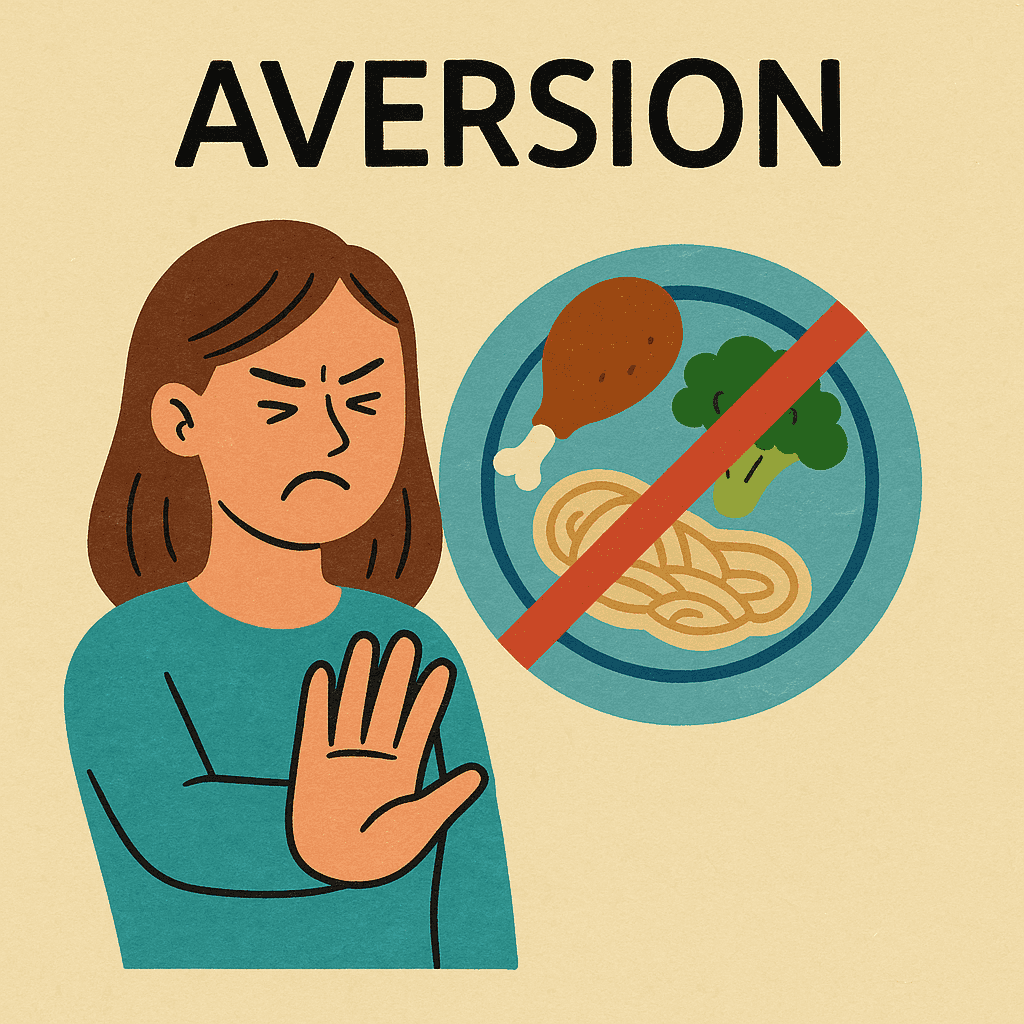Meaning
Aversion means a strong feeling of dislike or unwillingness toward something or someone. It describes a deep emotional resistance, not just mild dislike.
Grammar and Usage
-
Part of speech: noun
-
Typical patterns:
- have an aversion to + noun/verb-ing — dislike or avoid something strongly
- develop an aversion to — gradually begin to dislike something
- feel an aversion toward — express emotional resistance
Examples of structure:
- She has an aversion to crowds.
- He developed an aversion to spicy food after getting sick.
Common Phrases
- have an aversion to something
- develop an aversion to
- feel an aversion toward someone/something
- a natural aversion to
Collocations
- strong aversion
- deep aversion
- moral aversion
- innate aversion
- aversion therapy (a medical or psychological treatment aiming to reduce unwanted behavior through association with discomfort)
Examples
- She has a strong aversion to smoking.
- Many people feel an aversion to insects.
- He developed an aversion to traveling after a bad flight experience.
- The child’s aversion to vegetables made mealtime difficult.
- Her aversion to risk makes her a cautious investor.
- Some people have a moral aversion to lying.
- The dog showed an aversion to strangers.
- Aversion therapy is sometimes used to treat addictions.
Synonyms or Related
- dislike
- distaste
- hatred
- antipathy
- repulsion
- loathing
Antonym
- affection
- liking
- fondness
- attraction
- preference
